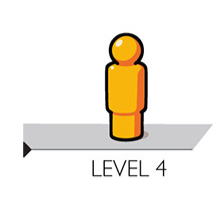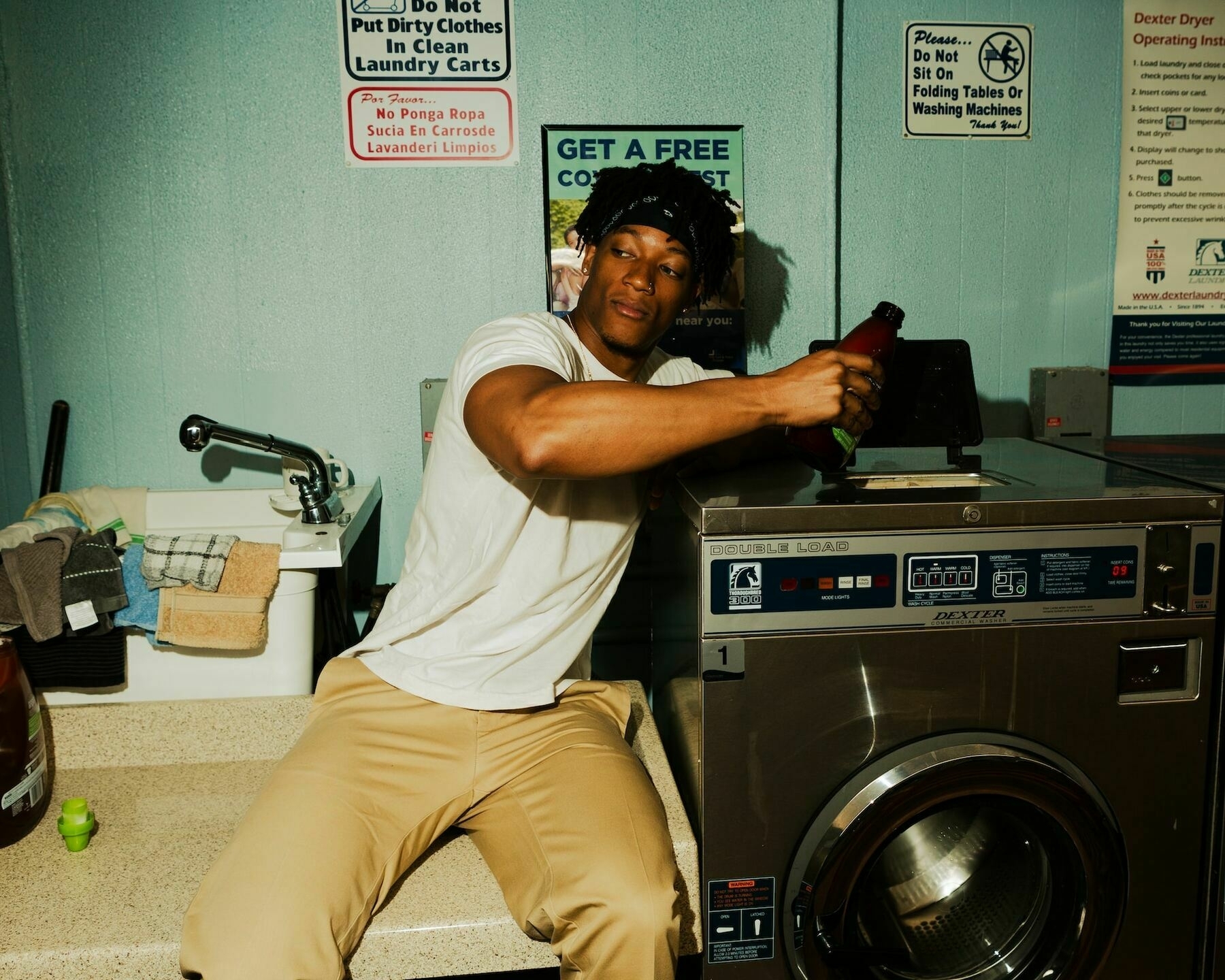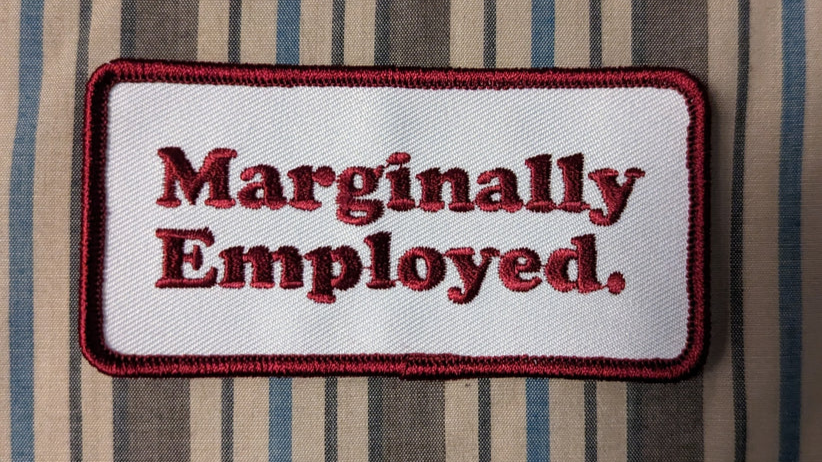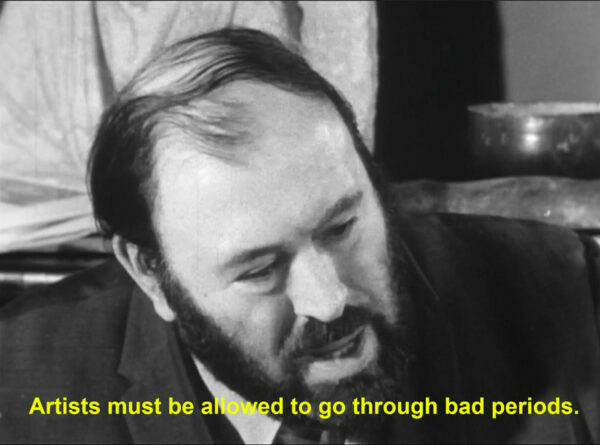2023
- Envisage an afterlife (in other words, a belief that some form of existence continues beyond death).
- Believe that an afterlife occurs in some sort of ‘underworld’, located beneath (rather than on or above) the world of the living. That implies that they may have developed some very embryonic sense of cosmology.
- Conceive the idea of physically burying their dead - in that ‘underworld’.
- Give grave goods to dead members of their community - an apparent act that implies that they may have believed that the dead would somehow be able to use them in an afterlife.
- Carry out potential rituals - specifically funerary meals - inside their ‘underworld’.
- Create rudimentary art (abstract designs) around the entrance to at least one of the burial chambers in that ‘underworld’.
- Plan some sort of relatively complex lighting system (either a succession of small fires and/or torches) to enable them to penetrate their ‘underworld’ and take their dead there.
Using AI to aid with banning books is another level of dystopia
I’m very much optimistic about the uses of AI tools such as LLMs to help with specific tasks. See the latest post on my personal blog, for example.
However, what I’m concerned about is AI decision-making. In this case, a crazy law is being implemented by people who haven’t read the books in questions who outsource the decision to a language model that doesn’t really understand what’s being asked of it.
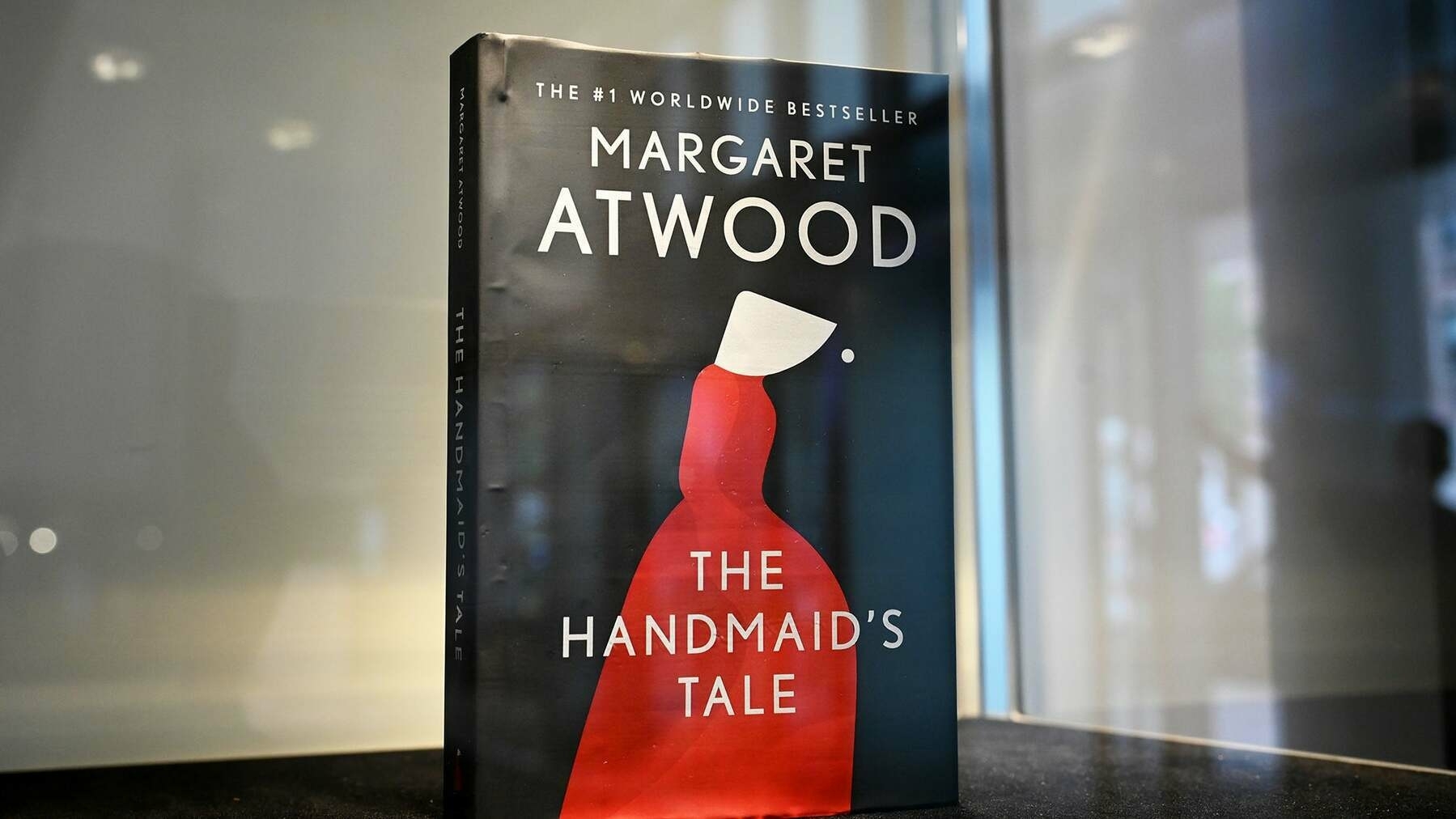
According to an August 11 article in the Iowa state newspaper The Gazette, spotted by PEN America, the Mason City Community School District recently removed 19 books from its collection ahead of its quickly approaching 2023-24 academic year. The ban attempts to comply with a new law requiring Iowa school library catalogs to be both “age appropriate” and devoid of “descriptions or visual depictions of a sex act.” Speaking with The Gazette last week, Mason City’s Assistant Superintendent of Curriculum and Instruction Bridgette Exman argued it was “simply not feasible to read every book and filter for these new requirements.”Source: School district uses ChatGPT to help remove library books | Popular Science“Frankly, we have more important things to do than spend a lot of time trying to figure out how to protect kids from books,” Exman tells PopSci via email. “At the same time, we do have a legal and ethical obligation to comply with the law. Our goal here really is a defensible process.”
According to The Gazette, the resulting strategy involved compiling a master list of commonly challenged books, then utilizing a previously unnamed “AI software” to supposedly provide textual analysis for each title. Flagged books were then removed from Mason City’s 7-12th grade school library collections and “stored in the Administrative Center” as educators “await further guidance or clarity.” Titles included Alice Walker’s The Color Purple, Margaret Atwood’s The Handmaid’s Tale, Toni Morrison’s Beloved, and Buzz Bissinger’s Friday Night Lights.
Income Level 4
I’ve had reason to reflect on how easy my life is recently. Not only am I a straight, middle-aged, able-bodied white guy but, according to Gapminder, I’m living life in a prosperous country on ‘Level 4’.
Worth pondering.
People at Income Level 4 earn more than $32 a day. At this Income Level, we find thee richest billion on the planet, who work in jobs that typically require at least 12 years of education — something those on the lower Income Levels cannot currently aspire to.Source: Income Level 4 | GapminderPeople at this Income Level are able to buy consumer goods, fly abroad with their families on holiday, and eat out at restaurants. None of these luxuries are available to people living at Levels 1 – 3, but are considered normal by most at Level 4.
The food they eat is often highly nutritious and diverse, as well as being rich in protein and vitamins. People at Level 4 can even buy pre-prepared food to save them time on cooking.
At this Income Level, not only electricity but also Internet connections are extremely reliable. Nearly every home has at least one TV and computer, and kitchens are equipped with stoves, ovens, toasters, and microwaves. Homes also have baths and showers installed with both hot and cold water — another luxury that is extremely rare at any other Income Level.
Instead of bikes and mopeds, people living at Level 4 usually own a car — sometimes even two per family. Public transport is also organized and readily available to everybody.
Perhaps most importantly, life at Level 4 is more secure than it is for people at levels 1 – 3. Not only are doors and windows locked securely, valuable property is usually insured against damage or theft. People also have bank accounts, access to credit, and pension funds for when they retire. Healthcare is also readily available to people living at Level 4, with basic medication available at affordable rates from local shops, and advanced and emergency medical treatment available locally to almost everybody.
AI sports recruitment
A few weeks ago, I watched part of the EA Sports FC 24 announcement video with my son. The CEO of Electronic Arts mentioned something that anyone who’s been paying attention already knows: games like FIFA (of which EA Sports FC is the spiritual successor) has transformed football.
There’s a symbiotic link between how people play football and how people play football video games. What’s less easy to spot is how talent is identified, nurtured, and shaped. That’s where articles like this one about AI in the behind-the-scenes processes comes in.
As someone with two very sporty kids, and one of whom is potentially on a pathway to professional football, this is fascinating to me.
There's no doubt that professional sports have been primed for the potential impact of artificial intelligence. Innovations have the potential to transform the way we consume and analyze games from both an administrative and fan standpoint. For soccer specifically, there are opportunities for live game analytics, match outcome modeling, ball tracking, player recruitment, and even injury predicting — the opportunities are seemingly endless.Source: Will AI revolutionize professional soccer recruitment? | Engadget[…]
Luis Cortell, senior recruiting coach for men’s soccer for NCSA College Recruiting, is a little less bullish, but still believes AI can be an asset. “Right now, soccer involves more of a feel for the player, and an understanding of the game, and there aren’t any success metrics for college performance," he said. “While AI won’t fully fill that gap, there is an opportunity to help provide additional context.”
At the same time, people in the industry should be wary of idealizing AI as a godsend. “People expect AI to be amazing, to not make errors or if it makes errors, it makes errors rarely,” Shapiro said. The fact is, predictive models will always make mistakes but both researchers and investors alike want to make sure that AI innovations in the space can make “fewer errors and less expensive errors” than the ones made by human beings.
[…]
The MLS said in a statement that ai.io’s technology “eliminates barriers like cost, geography and time commitment that traditionally limit the accessibility of talent discovery programs.” Felton-Thomas said it is more important to understand that ai.io will “democratize” the recruiting process for the MLS, ensuring physical skills are the most important metric when leagues and clubs are deciding where to invest their money. “What we’re looking to do is give the clubs a higher confidence level when they’re making these decisions on who to sign and who to watch.” By implementing the AI-powered app, recruitment timelines are also expected to be cut.
Secret family recipes (on the side of containers)
I love this 😂
In response to our call, 174 readers wrote in with stories of plagiarized family recipes. Hailing from New York to Nicaragua, from Auckland, New Zealand, to Baghpat, India, they prove that this is a global phenomenon. The majority of readers described devastating discoveries: They found supposedly secret recipes in the pages of famous cookbooks, and heard confessions from parents whose legendary dessert recipes came from the side of Karo Syrup bottles.Source: The Dirty Secret of ‘Secret Family Recipes’ | Gastro Obscura[…]
Several readers joked about family members threatening to take a secret recipe to the grave. To our surprise, we also received a story of a late-in-life confession:
My uncle was known around town as the “fudge man.” Every year, he would make pounds of it for Christmas parties, bake sales, and gifts. It was legendary—people would beg him for the recipe. When he was ill in the hospital, before he passed, his wife begged him for the recipe so she could keep his memory going. He replied, “It’s on the side of the marshmallow fluff container.”
–Jess Heller, Minnesota
Quake II remaster brings online LAN gaming
I can’t wait to play this. While I enjoy playing Doom Eternal by myself occasionally, LAN gaming the Quake II takes me back to being a teenager!
[embed]www.youtube.com/watch
In a surprise announcement at QuakeCon, publisher Bethesda Softworks announced the immediate availability of a light remaster of the classic first-person shooter Quake II, similar to the one for the first Quake that was released not that long ago.Source: Quake II gets a remaster for PC and consoles—and it’s exactly what it needs to be | Ars Technica[…]
You get a lot of content for 10 bucks; the package includes the game’s original campaign, both previously released expansions, Quake II 64, and a new campaign called Call of the Machine with 28 levels developed by Machine Games (the team behind the recent Wolfenstein games).
There’s also split-screen local multiplayer (up to four players), as well as LAN and online multiplayer.
Introducing Homo naledi
Science is awesome. I love the way that we continue to rediscover and reinterpret what it means to be human based on archaeology and scientific theories.

Using an unparalleled range of tests, experts are investigating whether a group of ‘ape-men’ succeeded in creating a complex human-like culture - potentially thousands of years before our own species, Homo sapiens, managed to do so.Source: Scientific discovery casts doubt on our understanding of human evolution | The IndependentAdding to the mystery is the fact that the now long-extinct species behaved in several key ways like modern humans - and yet appears to have been able to do that with brains which were only a third the size of ours.
The evidence assembled so far is beginning to suggest that these small-brained ‘ape-men’ may have been able to do seven remarkable things:
[...]
“We know that what we’re discovering breaks totally new ground - and is therefore likely to be controversial. That’s why we are deploying every possible type of investigative technology to ensure that the maximum amount of additional evidence can be found,” said the leader of the Rising Star Cave investigation, National Geographic and University of Witwatersrand palaeoanthropologist, Professor Lee Berger, who with co-investigator, human evolution expert Professor John Hawks, has just published a detailed National Geographic book on the discoveries, entitled Cave of Bones.
Landmark ruling in climate trial
I’ve only been there once, but Montana is an absolutely beautiful place. And much like other places that people call home, those that live there want to keep it that way.
It’s really heartening to see youth-led action be successful in a court of law. I hope that this leads to more cases being brought around the world.
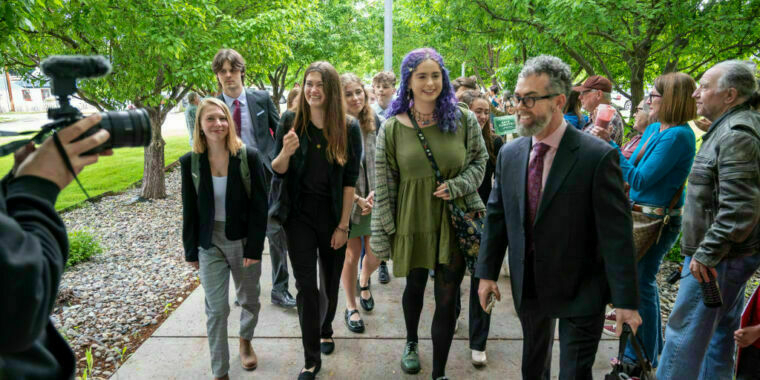
A Montana state court today sided with young people who sued the state for promoting the fossil fuel industry through its energy policy, which they alleged prohibits Montana from weighing greenhouse gas emissions in approving the development of new factories and power plants. This prohibition, 16 plaintiffs ages 5 to 22 successfully argued, violates their constitutional right to a "clean and healthful environment in Montana for present and future generations."Source: Montana loses fight against youth climate activists in landmark ruling | Ars TechnicaExperts previously predicted that a win for youths in Montana would set an important legal precedent for how courts can hold states accountable for climate inaction. The same legal organization representing Montana’s young plaintiffs, Our Children’s Trust, is currently pursuing similar cases in four other states, The Washington Post reported.
[…]
Montana tried to argue that adjusting its energy policy and other statutes would have “no meaningful impact or appreciable effect,” the Post reported, because climate change is a global issue. Montana Assistant Attorney General Michael Russell described the testimony as a “week-long airing of political grievances that properly belong in the Legislature, not a court of law,” according to the Post. Notably, the state did not meaningfully attempt to dispute climate science.
[…]
Experts told Scientific American that Montana’s emissions are significant given its population size, emitting in 2019 “about 32 million tons of carbon dioxide.” That’s “about as much as Ireland, which has a population six times larger,” Scientific American reported. Young people suing alleged that Montana had “never denied a permit for a fossil fuel project,” the Post reported.
The tyranny of efficiency
Coupled with this (cited) Slate article about what people did with their free time 20 years ago, it seems like Gen Z has gone beyond ‘touching grass’ to rediscover… errands?
I’m being facetious, but there’s some good points here about the tyranny of being able to do everything from your phone and the comfort of your bed/sofa. We live quite close to the middle of our small town, and there’s nothing I enjoy more than strolling into town to pick something up.
Also, the book mentioned, Four Thousand Weeks, is well worth reading. It’s excellent as a way to reflect on your philosophy of work/life.
If we associate leaving the house only with seeing friends, seeking pleasure, or simply getting out for the love of god, it follows that going out is something we only do voluntarily, rather than for the general business of staying on top of things. Under this purview, “having weekend plans” means having fun plans. While staying home—whether to work, take care of business, or relax—is “not plans.” And that distinction feels correct. Sure, we could argue that sitting on our computers or puttering around our houses should count as plans, but neither connotes the life-giving kineticism of executing a plan outside, with friends, or in public, and I don’t think we should pretend it does. Regardless, this is a distinctly modern mode of operation.Source: #153: Rethinking “weekend plans” | Haley Nahman[…]
In ‘Four Thousand Weeks’, a philosophical book about time management by Oliver Burkeman, he explains something he calls “the efficiency trap,” whereby the more we do, the more there is to do. This is of course counter to the mythology of productivity, which tells us that the sooner we can get things done, the sooner we’ll be able to relax and enjoy ourselves. Instead, Burkeman argues that “what needs doing” simply “expands to fill the time available.” Become efficient at work and you’ll be given more work. Answer all your emails and you’ll get all the replies and more. Finally reach your goals and you’ll think of new ones. There’s not actually an end in sight, and so by placing our faith in ever-decreasing segments of time spent on individual to-dos, we simply create the opportunity to complete more errands in less time, and in a more boring way. This reality presents us with the following paradox: Because it now takes less time to do things, we have way too much to do.
[…]
In Four Thousand Weeks, a philosophical book about time management by Oliver Burkeman, he explains something he calls “the efficiency trap,” whereby the more we do, the more there is to do. This is of course counter to the mythology of productivity, which tells us that the sooner we can get things done, the sooner we’ll be able to relax and enjoy ourselves. Instead, Burkeman argues that “what needs doing” simply “expands to fill the time available.” Become efficient at work and you’ll be given more work. Answer all your emails and you’ll get all the replies and more. Finally reach your goals and you’ll think of new ones. There’s not actually an end in sight, and so by placing our faith in ever-decreasing segments of time spent on individual to-dos, we simply create the opportunity to complete more errands in less time, and in a more boring way. This reality presents us with the following paradox: Because it now takes less time to do things, we have way too much to do.
Image: No Revisions
Calendars as data layers
I run my life by Google Calendar, so I found this post about different data layers including both past and future data points really interesting.
As someone who also pays attention to their stress level as reported by a Garmin smartwatch, and as someone who suffers from migraines, this kind of data would be juxtaposition would be super-interesting to me.
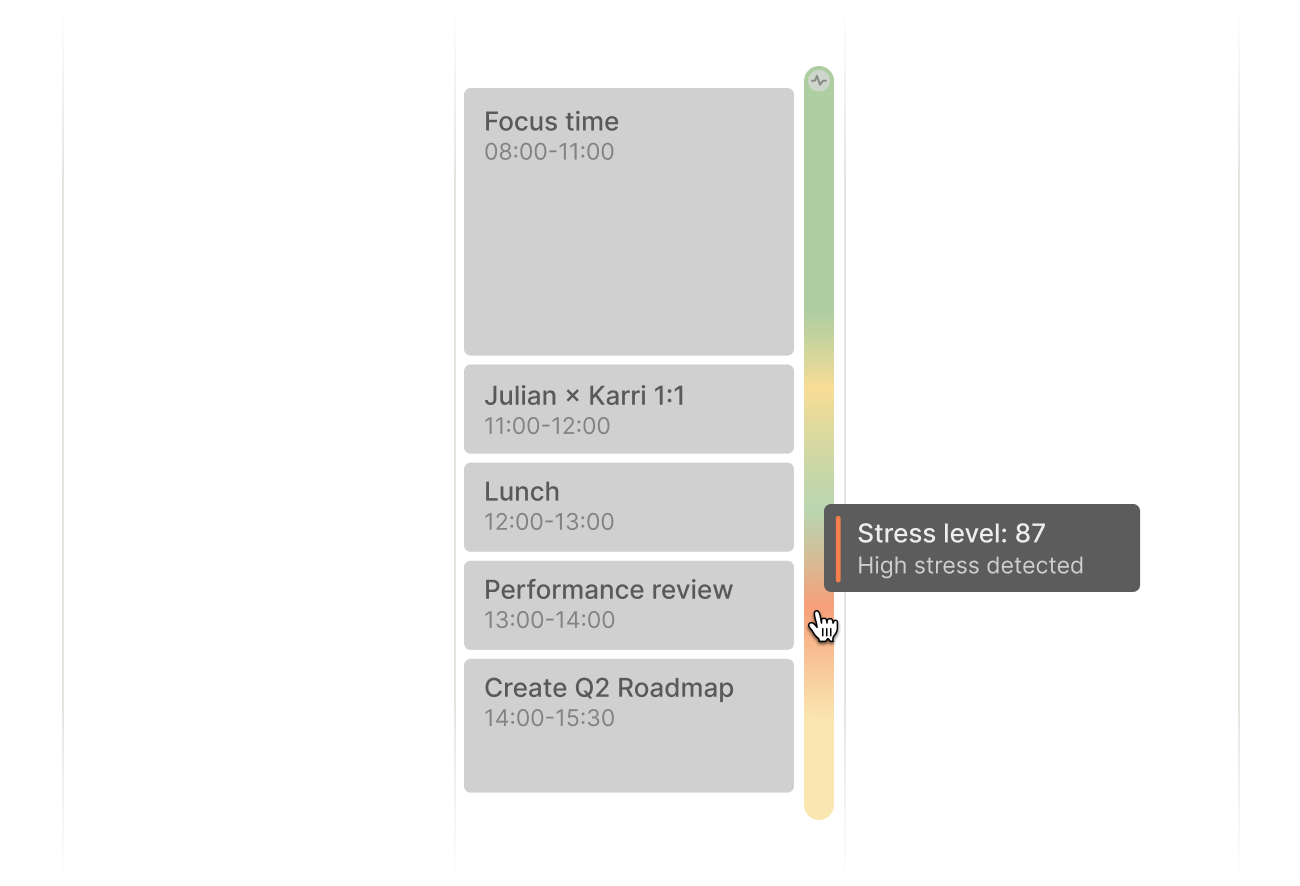
Our digital calendars turned out to be just marginally better than their pen and paper predecessors. And since their release, neither Outlook nor Google Calendar have really changed in any meaningful way.Source: Multi-layered calendars | julian.digital[…]
Flights, for example, should be native calendar objects with their own unique attributes to highlight key moments such as boarding times or possible delays.
This gets us to an interesting question: If our calendars were able to support other types of calendar activities, what else could we map onto them?
[…]
Something I never really noticed before is that we only use our calendars to look forward in time, never to reflect on things that happened in the past. That feels like a missed opportunity.
[…]
My biggest gripe with almost all quantified self tools is that they are input-only devices. They are able to collect data, but unable to return any meaningful output. My Garmin watch can tell my current level of stress based on my heart-rate variability, but not what has caused that stress or how I can prevent it in the future. It lacks context.
Once I view the data alongside other events, however, things start to make more sense. Adding workouts or meditation sessions, for example, would give me even more context to understand (and manage) stress.
[…]
Once you start to see the calendar as a time machine that covers more than just future plans, you’ll realize that almost any activity could live in your calendar. As long as it has a time dimension, it can be visualized as a native calendar layer.
Your personal time management strategy sucks
Too many pointless TLAs (Three Letter Acronyms) in this blog post, but it’s redeemed by having a core message that human beings are not cogs in a machine and have a finite time to accomplish their goals.
Although there have been plenty of people I’ve come across in my career who are always “super busy” there’s one person in my orbit in particular at the moment who seems to carry the world on their shoulders. As this post points out, this is due to an inability to focus on what’s important.
(The diagram below exudes peak 1990s management consultancy vibes, so I’m only including it for comedy value.)
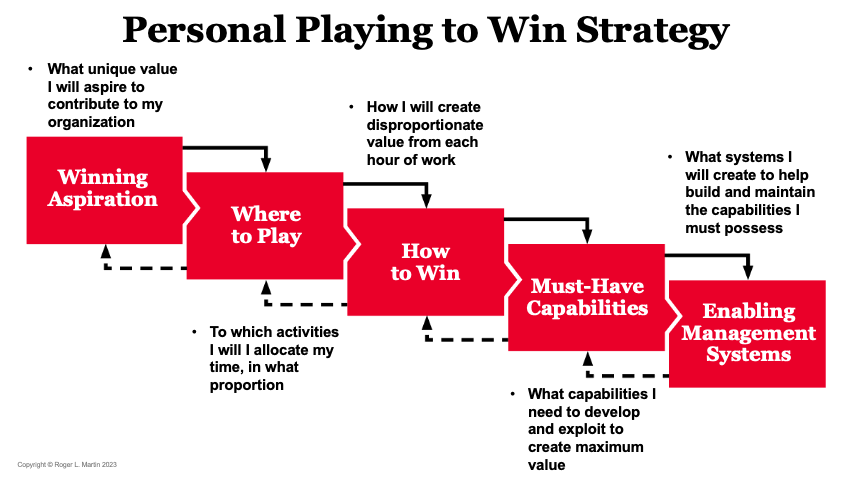
People inform me they are busy as if it is a badge of honor. For me, it is a signal that they have a weak personal Playing to Win strategy.Source: Being ‘Too Busy’ Means Your Personal Strategy Sucks | Roger Martin[…]
[T]o have an effective personal strategy, you need to be deliberative about choosing where to deploy your limited available hours in tasks that your particular set of capabilities enable you to generate a win by creating disproportionate value for your organization. And, since this doesn’t happen automatically, you need a personal management system for doing it on an ongoing basis — because on this front, eternal vigilance is the price of effectiveness.
[…]
Remember that strategy is what you do not what you say. So, even if you don’t think of yourself as having a personal Playing to Win strategy, step back and reverse engineer what it actually is based on what you actually do.
Giving advice online without mansplaining
In the last few days I rediscovered this post from Another Angry Woman via someone linking to it. I don’t think I shared it at the time, but it helped me understand how even well-meaning advice can be spectacularly unhelpful.
I’d recommend reading the whole thing, especially if you identify as male. However, the main takeaway for me was to ask if the person wants advice. Most recently, for example, I enquired if someone was “just venting or would like advice based on my experience”. They replied they were just venting.

Remember Clippy from Microsoft Office? You’re just trying to write a letter, and this insufferable little paperclip is popping up constantly with his vapid googly eyes and awful eyebrows and that fucking condescending smirk and his horrid little bendy body and oh god the colour of that speech bubble, like slightly worrying vaginal discharge, and the “it looks like” why is it so passive aggressive why- Sorry, I lost myself there. In short, Clippy was an irritation, and you’re giving someone’s notifications tab the vibes of using Word in 1997, which nobody wants to go back to.Source: How to give advice on the internet without being an utter menace | Another angry woman[…]
There is a gendered element to this, too. Mansplaining is something which most women on the internet have experienced fairly frequently. It is exhausting. It is patronising. It is the background hum of patriarchy.
You might not personally be mansplaining. Maybe you’re not even a man. But those who have been on the receiving end of mansplaining are sensitive to it. Your attempt to help can come across as mansplaining, and throw you straight into the draining and exhausting pile.
[…]
When someone is not asking a question, they probably do not want advice. This means, you have not been invited to give it. Your advice is not welcome. No matter how much you think there’s a solution to their predicament or they could do things a little differently, you’ve not been invited to share your advice. So don’t.
Saying "I don't know" is a privilege
Paul Graham is a smart guy. He’s a venture capitalist, and here he’s in conversation with Tyler Cowen, an economist. Both men are further to the right, politically, than me — so I winced a little at their references to the ‘far left’.
That being said, it’s an interesting episode and Cowen’s rapid-fire questioning is a useful tactic for getting guests to be more candid than they would otherwise be. What I found fascinating about Graham’s responses was that he would often say “I don’t know” instead of the prosaic “that’s a great question”. I guess once you’ve got the standing he has, there’s no need for him to pretend otherwise.
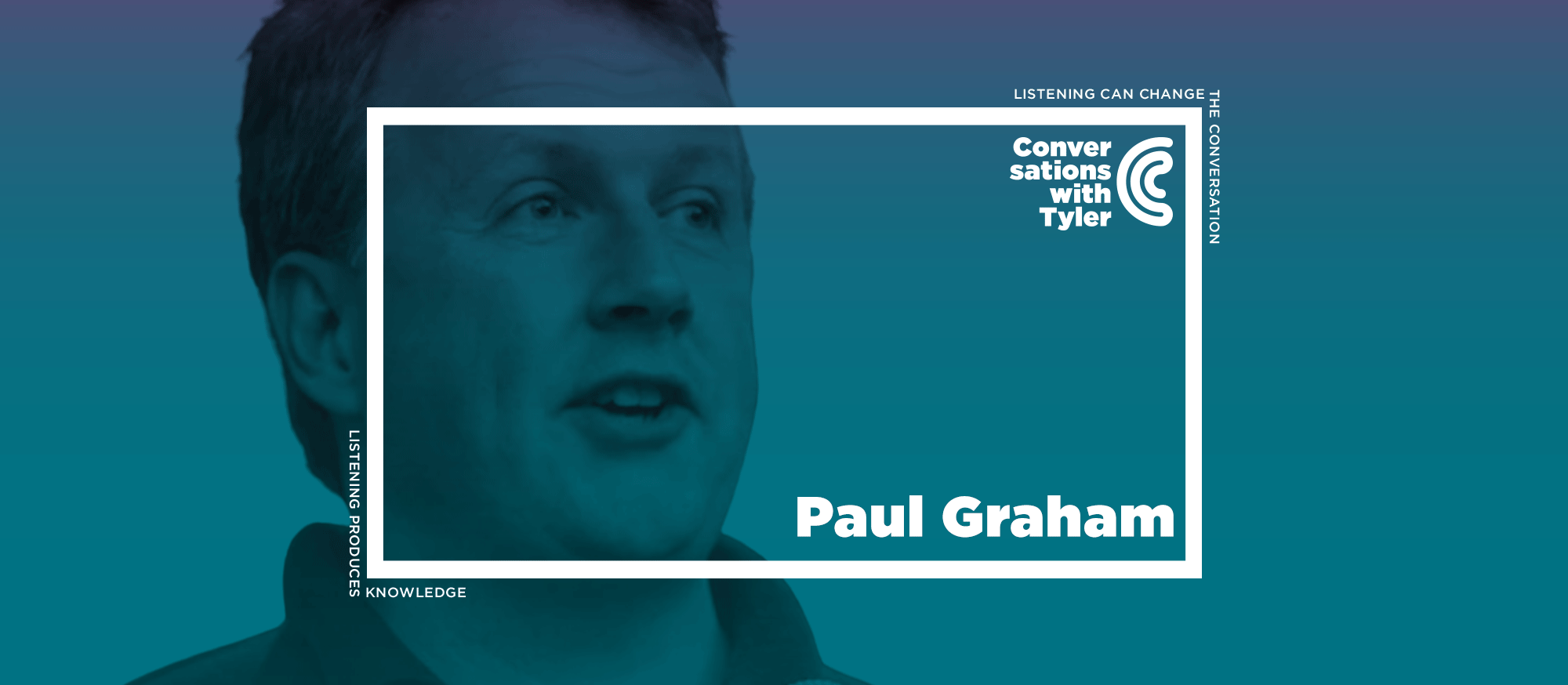
Source: Paul Graham on Ambition, Art, and Evaluating Talent (Ep. 186) | Conversations with TylerTyler and Y Combinator co-founder Paul Graham sat down at his home in the English countryside to discuss what areas of talent judgment his co-founder and wife Jessica Livingston is better at, whether young founders have gotten rarer, whether he still takes a dim view of solo founders, how to 2x ambition in the developed world, on the minute past which a Y Combinator interviewer is unlikely to change their mind, what YC learned after rejecting companies, how he got over his fear of flying, Florentine history, why almost all good artists are underrated, what’s gone wrong in art, why new homes and neighborhoods are ugly, why he wants to visit the Dark Ages, why he’s optimistic about Britain and San Fransisco, the challenges of regulating AI, whether we’re underinvesting in high-cost interruption activities, walking, soundproofing, fame, and more.
Actions speak louder than words
This article popped up on my feeds a couple of weeks ago and I recognised the organisation behind the website. Having listened to an excellent Art of Manliness podcast episode featuring Dr John Barry, I knew that ‘The Centre for Male Psychology’ is actually legit.
What this article discusses I’ve found true in my own life. I am by temperament introspective, which means for many years I thought the answer to any form of melancholy came in thinking. But, actually, I’ve found the answer to be in action in doing things such as climbing mountains, running, and doing things with my hands.

The two ways of regulating emotions have implications for the field of mental health, which relies predominately on talking therapy – in particular talking about feelings. Does this not suggest that there could be, and perhaps needs to be, more emphasis on discussing the therapeutic value of action? It may not be practical to conduct therapy while engaged in physical activity such as a gym workout or while out walking in the streets, but the therapeutic discussion can at least focus more on the “doing” aspects of a man’s life. For example a therapist might ask how did problem XYZ make a man act out, along with exploring which physical activities or responses might help him to modulate such emotions more optimally in future. Does riding a Jet Ski, or going for a jog, or building some wooden furniture make him feel better or worse? Does that difficult manoeuvre in the video game remind of difficulties in his relationship with his girlfriend? Does the same video game provide some optimism that if he can get past the difficult manoeuvre within the game then perhaps he can find a way around the impasse with his girlfriend? Activities like these provide a symbolic canvas on which men project, and then work through various scenarios of real life, with potential to shift affective resonances in the process.Source: Men tend to regulate their emotions through actions rather than words | The Centre for Male PsychologyWhen a man talks about how he operated a lathe, did some welding, restored a bit of discarded and broken furniture, might he be sharing a strategy of how he successfully redirected suicidal feelings? Perhaps we should not be so quick to shut down these conversations with accusations of being work obsessed, effectively stymieing natural male expressions with injunctions to talk less about activities and to communicate more effusively with feelings words. For many men, activities are the preferred canvases on which they can process feelings and carve out some genuine psychological equilibrium.
This is probably a reason why men talk so much about work, sports, building things, computer games, recreational activities – it may be their preferred way of communicating the ways they wrestle with psychological issues. Sadly, the therapeutic industry is quick to chastise men’s preference for intelligent actions, conflating them with pathological reflexes such as unconscious acts of aggression, dependence on drugs and booze, and other destructive versions of so-called “acting-out” as they are so often branded.
Marginally Employed
For various reasons I will explain elsewhere this post by Dan Sinker, which I read this morning, was particularly important to my life. Dan is awesome, and am thankful for his candor.
A month or so ago I was at a cookout for an old work colleague and friend. It was 100% people who I haven't seen since at least the pandemic hit, and most of them a few years even before that. And so, obviously, the first question anyone would ask is "what are you up to now," and, well, that's sort of a hard question for me to answer. As has been established on this blog before, I do a lot of things. Some of them are job-shaped, while others look, well, like an entire fictional town in Ohio. All of them are important to me and all of them are a little hard to explain.Source: Best Laid Plans | dansinker.comAnd so it was on that night that my brain—sometimes a friend, other times an enemy—responded “Well, I’m marginally employed,” before launching into a full-throated explanation of the wild world of Question Mark, Ohio to increasingly concerned onlookers.
I left the cookout feeling pretty weird, if I’m being honest. Since I’d last seen most of the folks that were there, they’d moved on to really incredible work. And here I was cobbling together bits and pieces of job-shaped things while spinning a yarn about a town plagued with disappearances. And then there was the term I used: marginally employed, which felt right but also felt a little embarrassing.
And then something happened. I talked about this on Says Who afterward and I heard from a bunch of folks who said, basically: Hey, me too. And I realized like, wait a second: I want to be doing work like I’m doing. Work that’s weird and exciting and, admittedly, hard to describe to people while also gnawing on some ribs. I don’t want to be doing a 9-5. I want to be marginally employed.
And so I made a patch. It’s really simple, just maroon on white and set in Cooper Black, my very favorite typeface. It reads, simply, “Marginally Employed.” No apologies, no frills. I love it. You might too. It’s $10 and ships free in the US.
Almhouses as a way forward for social housing
While I’m aware of medieval almshouses, I didn’t know they were still a thing. It’s great that there’s more being built now than in Victorian times, and I hope this kind of approach, along with co-operative housing, becomes even more of a thing.
It looks like they could be particularly useful for helping everything from ending rough sleeping, to stopping premature deaths in old age from poverty.

Almshouses are the oldest form of social housing in the world: the oldest foundation still in existence dates from about 990. Legally, historically and socially unique – exempt from right to buy legislation and so remaining as a permanent part of the community once gifted – there are 30,000 throughout the UK, providing affordable housing for more than 36,000 residents.
They are owned and managed by a network of more than 1,600 independent charities, and nearly all market towns in the UK have at least one almshouse. In some rural areas, they are the only provider of affordable, community housing.
In a time of a severe shortage of affordable rental accommodation, almshouse charities have long been trying to get attention from philanthropists and the government to make the case that their role is more vital than ever – that they should be put at the forefront of the community housing concept, providing an “exemplar housing model”.
Now, a new research project, the Almshouse Longevity Study from Bayes business school, has given extra ammunition to their call finding that those fortunate enough to live in an almshouse receive a longevity boost of almost two and a half years – equating to an extra 15% of future life for someone aged in their early 70s.
Despite not looming large in the public’s awareness, more almshouses are being built today than have been since the Victorian era; while most are for elderly people, some have no age restrictions and are able to accommodate families, people with disabilities and key workers.
[...]Paul Mullis, the chief executive of the Durham Aged Mineworkers’ Homes Association, the biggest almshouse charity in the UK, agreed. “Our residents know they can look forward to tomorrow because the things that make people’s lives worth living haven’t changed in the 1,000 years that almshouses were created to target: community, safe and secure housing, a sense of purpose.”
Meredith Whittaker on AI doomerism
This interview with Signal CEO Meredith Whittaker in Slate is so awesome. She brings the AI 'doomer' narrative back time and again both to surveillance capitalism, and the massive mismatch between marginalised people currently having harm done to them and the potential harm done to very powerful people.
Source: A.I. Doom Narratives Are Hiding What We Should Be Most Afraid Of | SlateWhat we’re calling machine learning or artificial intelligence is basically statistical systems that make predictions based on large amounts of data. So in the case of the companies we’re talking about, we’re talking about data that was gathered through surveillance, or some variant of the surveillance business model, that is then used to train these systems, that are then being claimed to be intelligent, or capable of making significant decisions that shape our lives and opportunities—even though this data is often very flimsy.
[...]
We are in a world where private corporations have unfathomably complex and detailed dossiers about billions and billions of people, and increasingly provide the infrastructures for our social and economic institutions. Whether that is providing so-called A.I. models that are outsourcing decision-making or providing cloud support that is ultimately placing incredibly sensitive information, again, in the hands of a handful of corporations that are centralizing these functions with very little transparency and almost no accountability. That is not an inevitable situation: We know who the actors are, we know where they live. We have some sense of what interventions could be healthy for moving toward something that is more supportive of the public good.
[...]
My concern with some of the arguments that are so-called existential, the most existential, is that they are implicitly arguing that we need to wait until the people who are most privileged now, who are not threatened currently, are in fact threatened before we consider a risk big enough to care about. Right now, low-wage workers, people who are historically marginalized, Black people, women, disabled people, people in countries that are on the cusp of climate catastrophe—many, many folks are at risk. Their existence is threatened or otherwise shaped and harmed by the deployment of these systems.... So my concern is that if we wait for an existential threat that also includes the most privileged person in the entire world, we are implicitly saying—maybe not out loud, but the structure of that argument is—that the threats to people who are minoritized and harmed now don’t matter until they matter for that most privileged person in the world. That’s another way of sitting on our hands while these harms play out. That is my core concern with the focus on the long-term, instead of the focus on the short-term.
Playing the right game
Thanks to Laura for pointing me towards this post by Simone Stolzoff. There’s so much to unpack, which perhaps I’ll do in a separate post. It touches on reputation and credentialing, but also motivation, gamification, and “value self-determination”.
Extracting yourself from the false gods of vanity metrics is hard, but massively liberating. It starts with realising small things like you don’t actually need to keep up a ‘streak’ on Duolingo to learn a language. But there’s a through line from that to coming to the conclusion that you don’t need to win awards for your work, or the status symbol of a fancy car/house.
I interviewed over 100 workers—from kayak guides in Alaska to Wall Street bankers in Manhattan—and met several people who achieved nearly every goal set out for them, only to realize they were winning a game they didn’t enjoy playing.Source: Playing a Career Game You Actually Want to Win | EveryHow do so many of us find ourselves in this position, climbing ladders we don’t truly want to be on? C. Thi Nguyen, a philosopher and game design researcher at the University of Utah, has some answers. Nguyen coined the term “value capture,” a phenomenon that I came to see all around me after I learned about it. Here’s how it works.
Most games establish a world with a clear goal and rankable achievements: Pac-Man must eat all the dots; Mario must save the princess. Video games offer what Nguyen calls “a seductive level of value clarity.” Get points, defeat the boss, win. In many ways, video games are the only true meritocratic games people can play. Everyone plays within clearly defined boundaries, with the same set of inputs. The most skilled wins.
Our careers are different. The games we play with our working hours also come with their own values and metrics that matter. Success is measured by how much money you make—for your company and for yourself. Promotions, bonuses, and raises mark the path to success, like dots along the Pac-Man maze.
These metrics are seductive because of their simplicity. “You might have a nuanced personal definition of success,” Nguyen told me, “but once someone presents you with these simple quantified representations of a value—especially ones that are shared across a company—that clarity trumps your subtler values.” In other words, it is easier to adopt the values of the game than to determine your own. That’s value capture.
There are countless examples of value capture in daily life. You get a Fitbit because you want to improve your health but become obsessed with maximizing your steps. You become a professor in order to inspire students but become fixated on how often your research is cited. You join Twitter because you want to connect with others but become preoccupied by the virality of your content. Naturally, maximizing your steps or citations or retweets is good for the platforms on which these status games are played.
Bad work
Not just artists - we all go through life’s ups and downs, good periods and bad. Right now is the least tolerant time since I’ve been alive. Everyone’s supposed to be on it 24/7.
Viewed in the context of the episode, Sylvester is talking, specifically, about the “professionalization” and “commercialization” of art, and basically the hype machine of the art world.Source: Artists must be allowed to make bad work | Austin Kleon
Digital wallets for verifiable credentials
Purdue University had something like this almost a decade ago, but there’s even more call for this kind of thing now, post-pandemic and in a Verifiable Credentials landscape.
Everyone’s addicted to marrying ‘skills’ with ‘jobs’ but I think there’s definitely an Open Recognition aspect to all of this.
ASU Pocket captures students’ traditional and non-traditional educational credentials, which are now, with the emergence of verifiable credentials, more portable than ever before. This gives students the autonomy to securely own, control and share their holistic evidence of learning with employers.Source: ASU Pocket: A digital wallet to capture learners’ real-time achievementsA digital wallet, like ASU Pocket, holds verifiable credentials – which are digital representations of real-world credentials like government-issued IDs, passports, driver’s licenses, birth certificates, educational degrees, professional certifications, awards, and so on. In the past, these credentials have been stored in physical form, making them susceptible to fraud and loss. However, with advances in technology, these credentials can be stored electronically, using cryptographic techniques to ensure their authenticity. This makes it possible to verify the credential without revealing sensitive information, such as a social security number.
[…]
At ASU Pocket, we also view verifiable credentials as an important tool for social impact. They provide a way for people to document their skills and accomplishments, which can be used to gain new opportunities. For example, someone with a verifiable skill credential for customer service might be able to use it to get a job in a call center. Likewise, someone with a verifiable credential for computer programming might be able to use it to get a job as a software developer.
In both cases, the verifiable credential provides a way for the individual to demonstrate their skills and qualifications gained through or outside of traditional learning pathways. This is especially impactful for marginalized groups who may have difficulty obtaining traditional credentials, such as degrees or certifications.
AI generated art aesthetic
Yes, it’s “just typing prompts” but then drawing is “just making marks on paper”. Love this aesthetic.
Source: An Improbable Future
